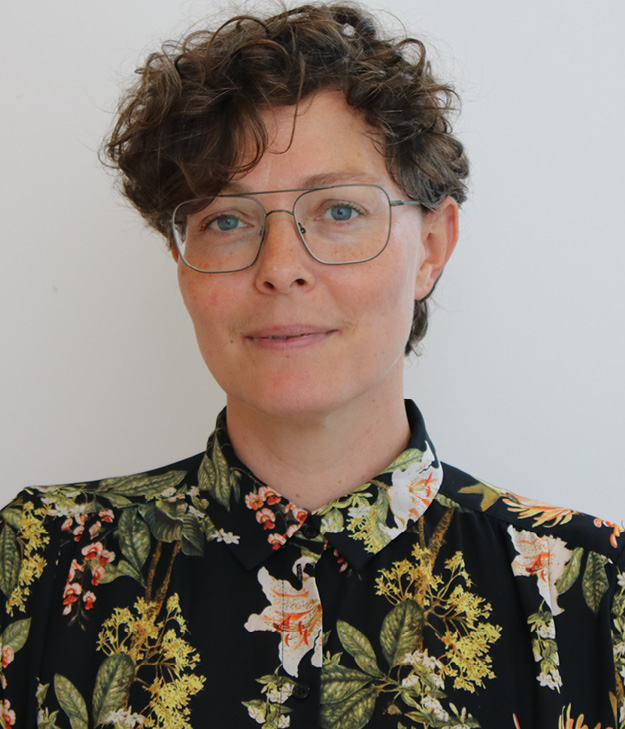Pat is based in the TLRH and her work focuses on human-machine relations from a feminist, humanistic perspective. Together with her two mentors, Prof. Dr Jennifer Edmond (The Trinity Centre for Digital Humanities) and Prof. Dr Conor McGinn (Department of Mechanical, Manufacturing & Biomedical Engineering), she will explore, probe and re-draw the relation between humans and machines anew — beyond relations of imitating ‘the human’.
Pat’s project draws from her previous interdisciplinary research, especially from her latest project on „Robotic Knitting“ (transcript 2021), in which she realised collaborative hand knitting between humans and a cobot (collaborative robot) in order to tweak established imaginations and practices of interaction at the human-cobot interface. In her project in the H+ programme, she continues to realise interdisciplinary fieldwork that situates her — as a feminist humanities scholar — within contemporary sites of AI technology development as sites of integrative, collaborative work across disciplinary boundaries. Combining critical digital humanities, feminist materialisms, affect studies and the emerging field of love studies in her approach, Pat explores the ways in which AI is a field entrenched in effects. She asks how effects are reduced to an instrument of building human-friendly as human-like machines. While AI provides an increasing number of digital technologies that are supposed to move into every household in the global north, Pat is interested in the ways in which the humanlike paradigm is causing a mismatch between humans and technologies which embody unreflected stereotypes, bias and inequalities. Thus, she scrutinises the humanlike by integrating insights into the relational, precarious and material nature of effects into processes of conceptualising and realising human-machine relations. More precisely, she focuses on exploring how one selected effect, namely that of love, matters and could matter at the selected sites of AI research and development. Notably, she works with an account of love not in the sense of the mental state of romanticised pairing or the appeal of a product, but rather as a hands-on, methodological intervention into, first, the normative and normalizing operations of the humanlike paradigm in AI and, second, the existing hurdles of interdisciplinary research. How could love as a potentially transformative effect spark a desire for a sustainable change in how humans and machines are related? This account of love re-introduces affects as a non-quantifiable, non-instrumentalise, embodied and political component of developing more socio-culturally aligned human-machine relations in AI.
Pat holds a binational PhD (TU Berlin/Linköping University) and has worked and lived in Berlin for over a decade. She is a passionate sewer and knitter and enjoys hiking.
